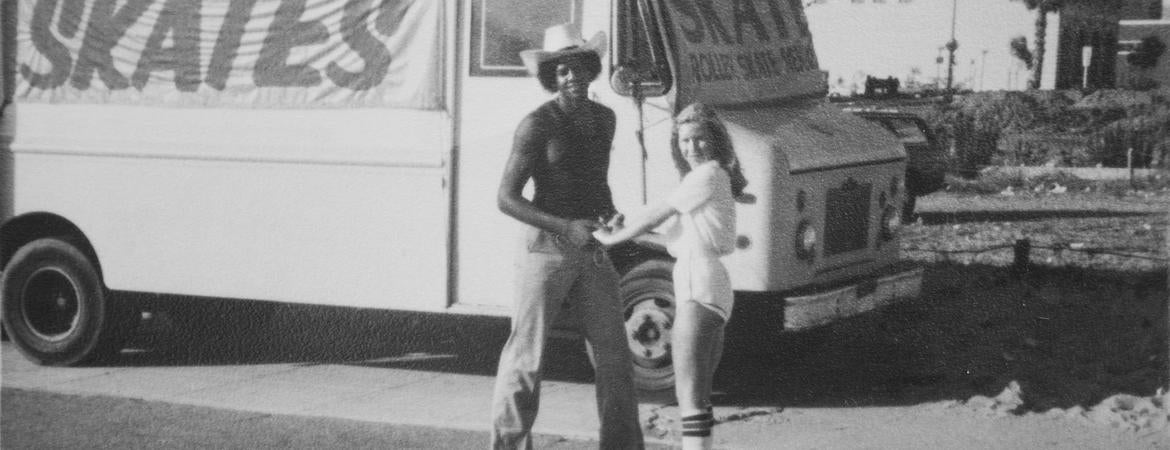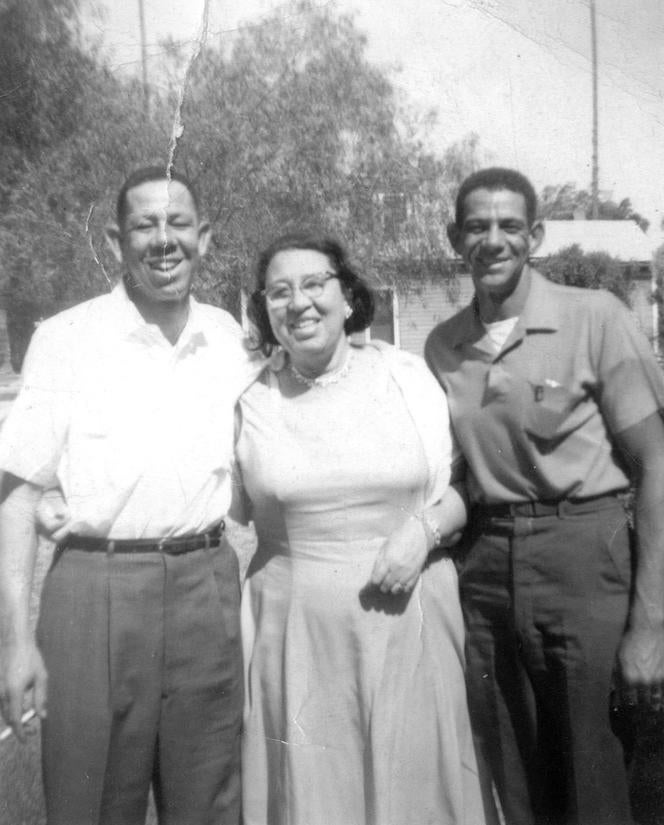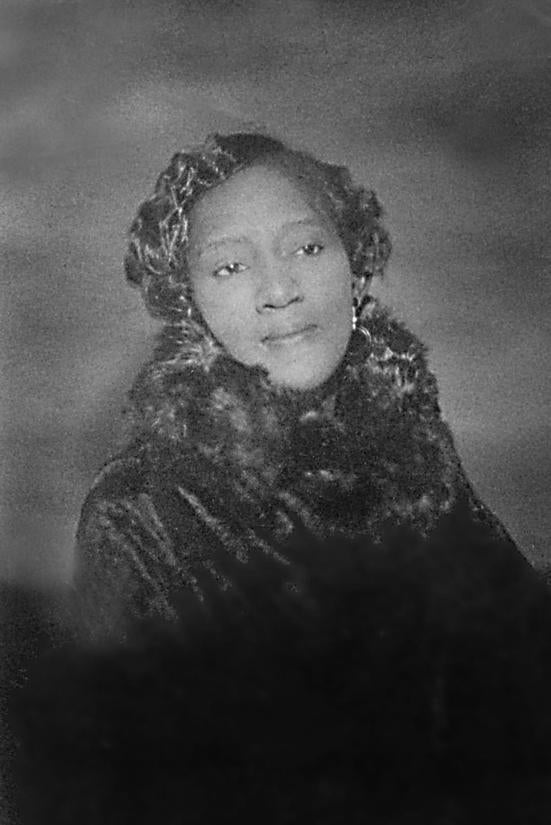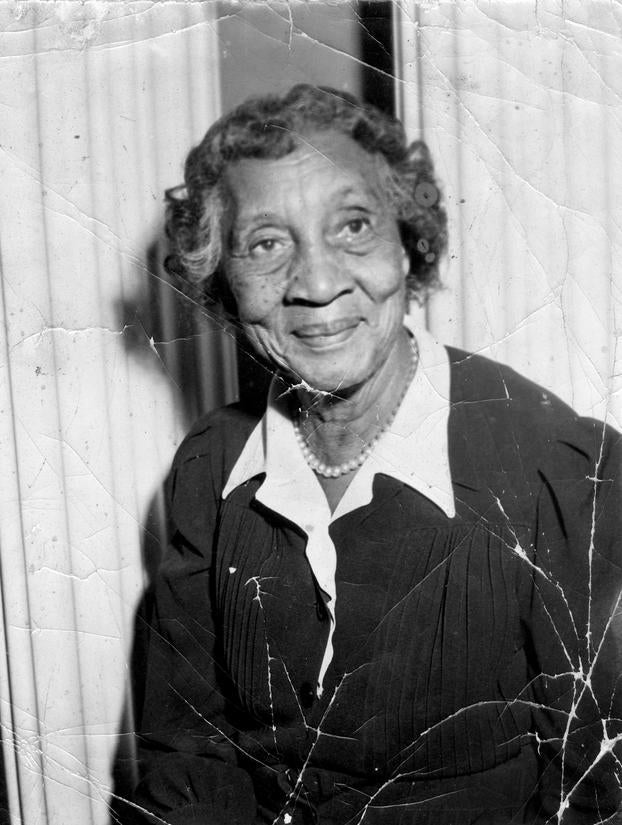College of Humanities, Arts, and Social Sciences

Distinguished Professor of Creative Writing Susan Straight has spent 32 years at UCR inspiring her students to tell their own stories. Now she has published her own story, "In the Country of Women: a Memoir”.
Straight’s memoir examines the lives of five generations of women in her family who have migrated from around the world to settle in the Inland community. As the mother of three mixed-race women, Straight’s memoir is structured as letters to her daughters, telling the stories of their female ancestors who migrated from the mountains of Switzerland and the plantations of Mississippi to reside in the Riverside County area.
“In writing this book... I was trying to...honor all of the female ancestors, most of whom migrated by themselves to get to Southern California,” Straight said. “I just finished a class where we talked about...how many of us are from large families whose parents had to take on a different identity or change their names. My mom changed her name, she Americanized her name when she got here, and I can talk about that in a way that maybe not every professor could.”
“Susan's book In the Country of Women: A Memoir' is a remarkable balance between a story that is deeply personal and autobiographical, but also universal in its appeal for many readers, as it recounts stories of resilience and struggle, both psychological and practical,” said Erith Jaffe-Berg, professor of theatre, film and digital production. “She dedicates the book to her daughters, and as we experience it, the book interweaves the biracial histories of her family members.”
Straight met her future husband, Dwayne, in the eighth grade, and learned from his family stories of his grandmother Fine, born just after the Civil War in Tennessee to a mother previously enslaved, and Fine's daughters, Jennie and Callie, born in Tennessee and Texas. Fine made her way to Southern California with her five children, where they settled in Riverside. Straight also included stories of her grandmother, Rosa Leu, who emigrated to Fontana and became head nurse at the original Kaiser Permanente hospital.
“So often in history, politics, popular culture, art and literature, the roles and contributions of women are diminished or relegated to the background,” said Alex Espinoza, Straight’s former student and the current UCR Tomás Rivera Endowed Chair and Associate Professor of Creative Writing. “Susan's memoir shows why it is important to elevate the stories and experiences of women and recognize and honor these struggles and sacrifices.”
“Her attention is focused on the price of race and class in America, recurrent themes in her books,” Jaffe-Berg said. “As she puts it, it is an ‘odyssey of women.’ She describes the histories of the women as ‘moving about in the darkness’...ways histories are remembered and passed down conditions whose stories we tell and how we remember those people.”
Straight has also used her experiences with dual cultures to offer unique insight in her classroom curriculum.
“In class, we talked about what [it means] to have dual identities...to migrate from one ladscape to another and...to have two cultures,” Straight said. “What does it mean to use languages like Spanish or Swiss-German? It’s important for me to say, ‘Look at all these books out there for people who have dual languages or dual cultures’...We also are writing about what it means to be women, what it means to share histories and to be migrant but to also love language. [We ask] how does the narrative shape the story?”
Straight has lived in Riverside her entire life. Her love for the local community has led Straight to volunteer as the Chair for the National Scholarship for the Riverside Elk Lodge, where she manages scholarship outreach and visits local schools. Susan’s daughters were also born and raised in Riverside, and they share her deep love for the city and its community.
“My middle daughter is a PhD student in Berkeley...and she has begun thinking about what it means to be from a place like Riverside,” Straight said. “She says with an immense amount of pride, ‘[Riverside is] one of the most beautiful places in the world and I miss it all the time.’ People are always taken aback, but you can see poppies and blue canterbury bells…[and] I love that she misses the palm trees we have here.”
“[Susan] was born and raised in Riverside,” Espinoza said. “She's as much a part of the landscape as the orange groves and palm trees, the hills and arroyos. She gives these elements and the people who live here a voice and a national and international presence. She's put Riverside on the literary map in a way no other writer has. She has done this tirelessly and consistently for decades. She has left an enduring legacy and has influenced many writers. I can say that I am the writer and the teacher that I am because of Susan. Because she was there. Because she cared enough to listen to what I had to say.”
“I have learned as much from my students as they have from me,” Straight said.
As a first-generation high school and college student, Straight uses her unique perspective to connect with her students.
“I’m the first person in my family to graduate high school, not just college,” Straight said. “What I usually start out by saying to my students is ‘How many of us are not just first-generation to go to college, but first-generation to graduate from high school and then go on to college?’ As a distinguished professor, when I say that...so many of my students would have never thought that would have been possible.”
Straight uses her experiences as a first-generation student to connect with her own students, many of whom are also first-generation students, including Straight’s former students multi-award winning author Rigoberto González and Creative Writing lecturer Sara Borjas, as well as Espinoza.
“I'm a first-generation student as well, and it was refreshing to learn that Susan was one also when I first landed at UCR because I knew she would be able to recognize many of the struggles I would face,” Espinoza said. “In her, students see themselves. She comes from the streets and neighborhoods that they do, and she knows their challenges. She always had us read works by writers who came from working class and immigrant backgrounds because she wanted us to recognize and see ourselves in literature. That's a very powerful awareness, something that left a huge impression on me and shaped how I approached my teaching and my writing.”
“I think Susan [embodies] the mission of UCR, which is to teach with a great sense of social mission and compassion,” said Jaffe-Berg. “I think she also embodies the motto of fiat lux, [or] ‘let there be light’...the motto of the UC. She brings light to the stories that would otherwise go untold and she encourages her students to tell their own stories, seeing value and worth in each one.”



FEATURED PHOTO. Douglas McCulloh, Senior Curator at the California Museum of Photography Author/Professor Susan Straight and her former husband, Dwayne, who she met in eighth grade and with whom she has three daughters.